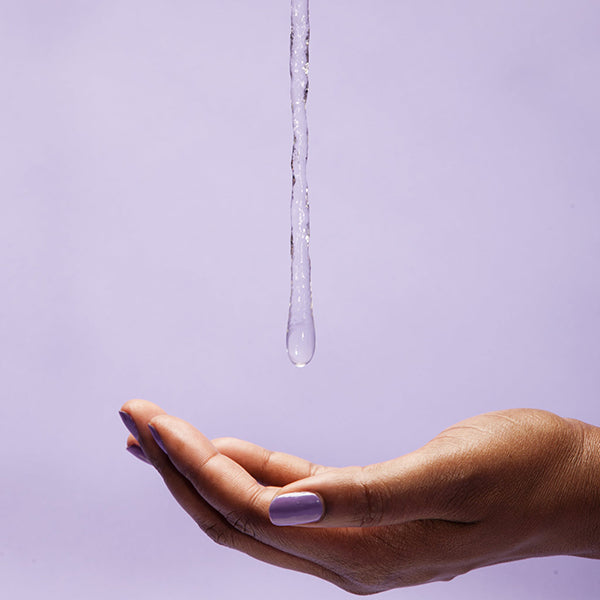
Everything You Need to Know About Vaginal Lubricants
Share
What’s the point?
When a woman is sexually aroused, the vagina normally self-lubricates. This makes the overall experience a lot more fun.
Intercourse without lubricant can be painful and damage the vaginal lining. Your body may produce less lubricant as a result of hormonal changes, menopause, aging, or medication. That’s usually where artificial lubricant comes in.
Artificial lubricant can help enhance arousal, boost sexual pleasure, keep your vaginal skin soft, and, most importantly, reduce friction during penetration — whether it’s by a partner or your favorite sex toy. You can buy lubricant online or at your local drugstore.
Not sure where to start? Read on to learn how water, oil, silicone, and natural options compare, products to try, tips for use, and more.
What are the different types to try?
There are different types of lubricants to suit different needs. It’s totally normal if you favor one over the rest, or if you like to switch things up depending on the situation. Whether you’re a first-time buyer or looking to expand your lubricant collection, there’s one out there for you, guaranteed.
Sakulove Collagen Water Based Lubricant contains collagen, which makes vaginal epidermis compact and repairs epidermis. It can also hydrate and moisturize, moisten and whiten, solving vaginal dryness, so as to improve vaginal environment balance. In particular, it provides a slight feeling of warmth to the clitoris with more pleasure during intimate contact or masturbation.
Sakulove Collagen Water Based Lubricant does not contain preservatives, nor does it contain hormones such as estrogen, progesterone or testosterone.
FEATURES
- Water Based: Easy to clean.
- Collagen: Hydrate and moisturize, moisten and whiten, solving vaginal dryness.
- Sterile Syringe Packaging: Easier to use, safe, hygienic.
Things to consider when choosing the right lubricant for you
Of course, not all vaginal lubricants are created equal. Some brands will work better for you than others, depending on your needs.
If you’re dealing with dryness. “Warming” lubricants may not help, as they contain glycerin and can dry quickly. Long-lasting silicone lubricants are your best bet.
If you’re prone to yeast infections. Stay away from lubricants with glycerin. The compound can irritate your vagina and kill good bacteria, triggering an infection.
If you’re trying to conceive. Look for a lubricant that says it’s “sperm friendly” or “fertility friendly” on its packaging. Research source shows that some lubricants can have a negative impact on sperm motility.
If you’re going to use a condom. Avoid oil-based lubricants at all costs. Nothing destroys a latex condom quicker than oil-based lubricant.
If you’re going to use a sex toy. Stick with a water-based lubricant. If your sex toy is made of silicone, silicone-based lubricants can break down a toy’s rubber over time.
If you’re going to play in the shower, please choice silicone-based lubricant. Water-based products will rinse off as soon as you’re under the showerhead.

Is there anything to avoid entirely?
Although oil-based lubricants are safe to use, they can render most condoms ineffective. They may cause vaginal irritation too.
You should also limit your use of lubricant with fragrance or flavoring. These chemicals may cause irritation.
Some ingredients in lubrications are more likely to result in inflammation or irritation and should be avoided by those who are sensitive. These ingredients include:
- glycerin
- nonoxynol-9
- propylene glycol
- chlorhexidine gluconate
Is lubricant the same thing as vaginal moisturizer?
Vaginal moisturizers can help prevent general itching and irritation, but they don’t provide enough wetness to prevent discomfort during penetration.
That’s because moisturizers, unlike lubricants, are absorbed into the skin. They need to be used regularly in order to ease dryness.
If you’re planning on having any type of sexual activity, you may still need to use a lubricant to increase comfort.
Are there any side effects?
Most lubricants are free of side effects. However, it’s possible to have an allergic reaction to something in the lubricant.
See your doctor if you develop any of the following symptoms after use:
- Difficulty breathing
- Any swelling, especially of the tongue, throat, or face
- Hives
- Rash
- Itching
Also see your doctor if you develop more frequent yeast infections when lubricant is a part of your regular routine.
The bottom line
Vaginal lubricants can be a great way to help ramp up your partner or solo sex session. The added wetness can reduce any friction or discomfort and help increase arousal.
When deciding between different lubricants, keep your comfort and safety in mind. How much you use and how long your lubricant lasts will determine whether or not you’re going to have any fun during your afternoon romp. With the wrong product, your vagina may feel irritated instead of frisky.
